It's got to the point, what with the nature of streaming services, foreign shows coming to UK TV later than their original screening, and my frequent tardiness at getting round to watching things, that any discussion of my year's viewing will inevitably end up covering stuff of an older vintage. With that in mind, two of the first things I watched in 2024 were shows I came to late, having previously written them off.
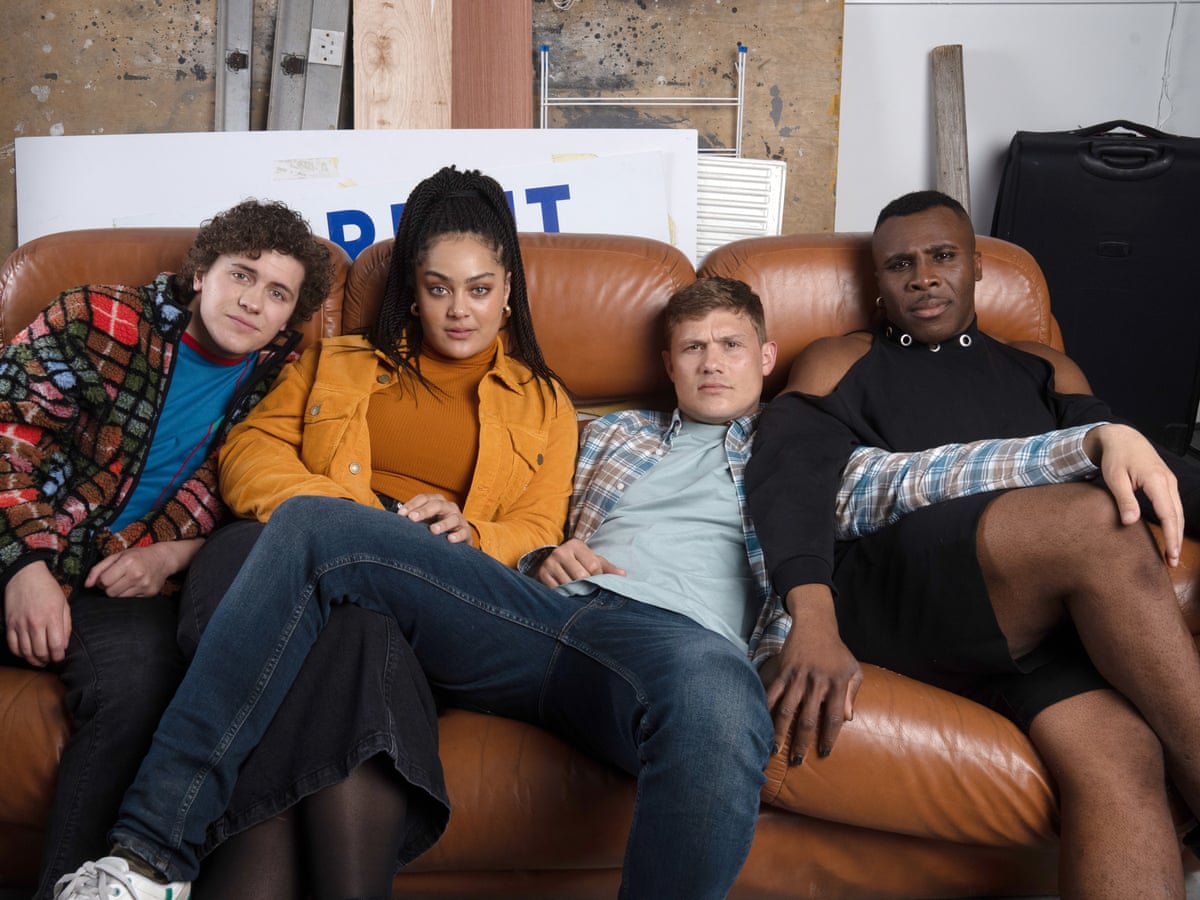
With Channel 4's BIG BOYS, that was a result of the promotion around 2022's Series 1 making it look a little, well, Inbetweenersy. In fact, while certainly involving the sort of humour almost inextricable from a show about students, this was actually a really sweet programme that covered sexual identity, grief and mental health in a sensitive and rewarding way. Based on creator Jack Rooke's own life, it tells the story of a shy 19 year old, coming to terms with the death of his father, his as-yet-unexpressed gayness and the shock of leaving a sheltered home for uni. I haven't researched how much of the story has been exaggerated for comic effect, but Jack finds himself living not in halls, but - due to an administrative error - in what is essentially a shed, along with the geezerish Danny. The latter is portrayed with a welcome disruption of cliche: sure, he's a lad from Kent with a can in hand and an eye for the ladies, but he's also immediately unfazed by his new roomie's sexuality and swiftly becomes (other than Jack's mum, played by the brilliant Camille Coduri) his biggest supporter. Anyway, Danny has his own issues, with his beloved grandmother (Sheila Reid) ailing, his dickhead dad (Marc Warren, appearing in this year's second series) estranged, and his mental health decidedly shaky. Jon Pointing's performance as Danny is brilliant, and the loving way he's written made me fear that the whole show could be some sort of posthumous tribute to the real person (though ultimately I've seen no evidence of this). Meanwhile, Dylan Llewellyn, best known for playing feckless youths in Derry Girls and Beyond Paradise, proves himself capable both of leading a show and portraying a more three-dimensional character. Excellent support comes from fellow students Izuka Hoyle and Olisa Odele, while scenes are stolen by Katy Wix's hapless student union officer Jules and Harriet Webb's turn as Jack's boisterous cousin Shannon. I devoured both series, and would greedily accept more - though Jack Rooke's cameo in the last episode made for a suitably lovely farewell.

In the case of OUR FLAG MEANS DEATH, I actually watched the first episode on its original UK broadcast and dismissed it, again due to the humour being a tad too broad. Happily, I was convinced to give it another go, and - waddayaknow? - discovered a real gem. Come for the jokes about a rubbish pirate crew, stay for a show that covers all manner of LGBTQ relationships with a deft and almost subtle skill. Turns out the notion of a chosen family fits pretty well with the wayward sailors of Stede Bonnet's ship The Revenge. It appears that plans for a third season have been snuffed out by HBO, but at least the second ended with a satisfying conclusion rather than a cliffhanger.
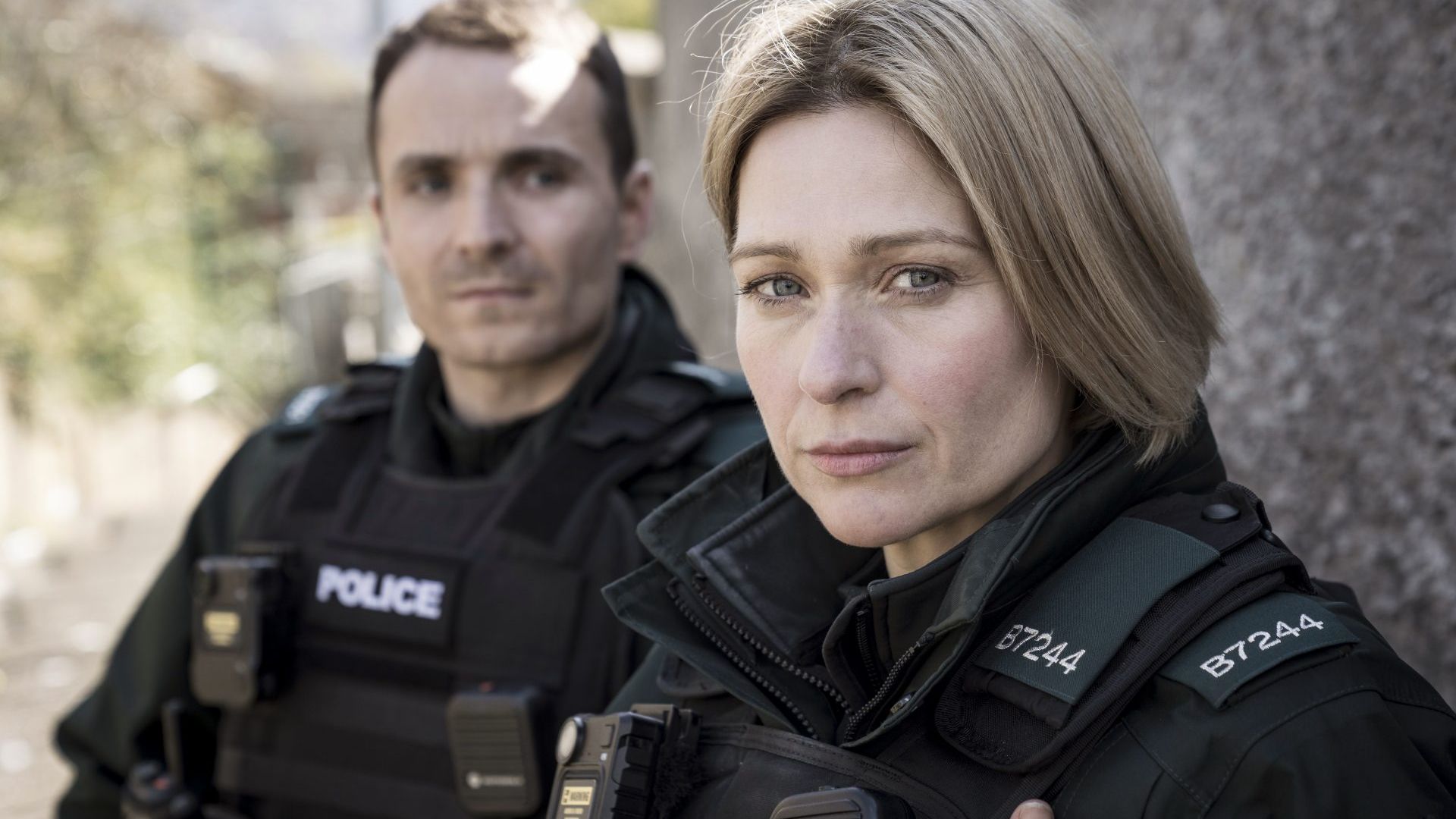
Of course, plenty of shows I did get on board with immediately also returned this year. Chief among them was BLUE LIGHTS, the near insanely blood-pumping story of coppers policing a volatile Belfast. Almost all of the cast returned, including Series 1's now more experienced rookies Grace (Siân Brooke), Tommy (Nathan Braniff) and Annie (Katherine Devlin); even the previously disgraced Jen (Hannah McClean) and Jonty (Jonathan Harden) were given redemptive storylines, the former now a lawyer investigating the security services' possible involvement in a historical act of terrorism. The principal antagonist this time was Lee Thompson (Seamus O'Hara), a charismatic Protestant and former soldier with a plan to rid his east Belfast manor of its duelling drug gangs. A man with noble aims but a ruthless streak, his relative calm made him a more sinister threat than Series 1's criminals, while the tension only ramped up as the principals found themselves in some pretty sticky situations - and if you've seen the first series, you know that nobody is safe. Throw in some dodgy characters amongst the police ranks, romantic subplots (including for the sweet-as-anything Tommy) and some humour to offset the griminess, and you've got one of the best shows currently running on telly.
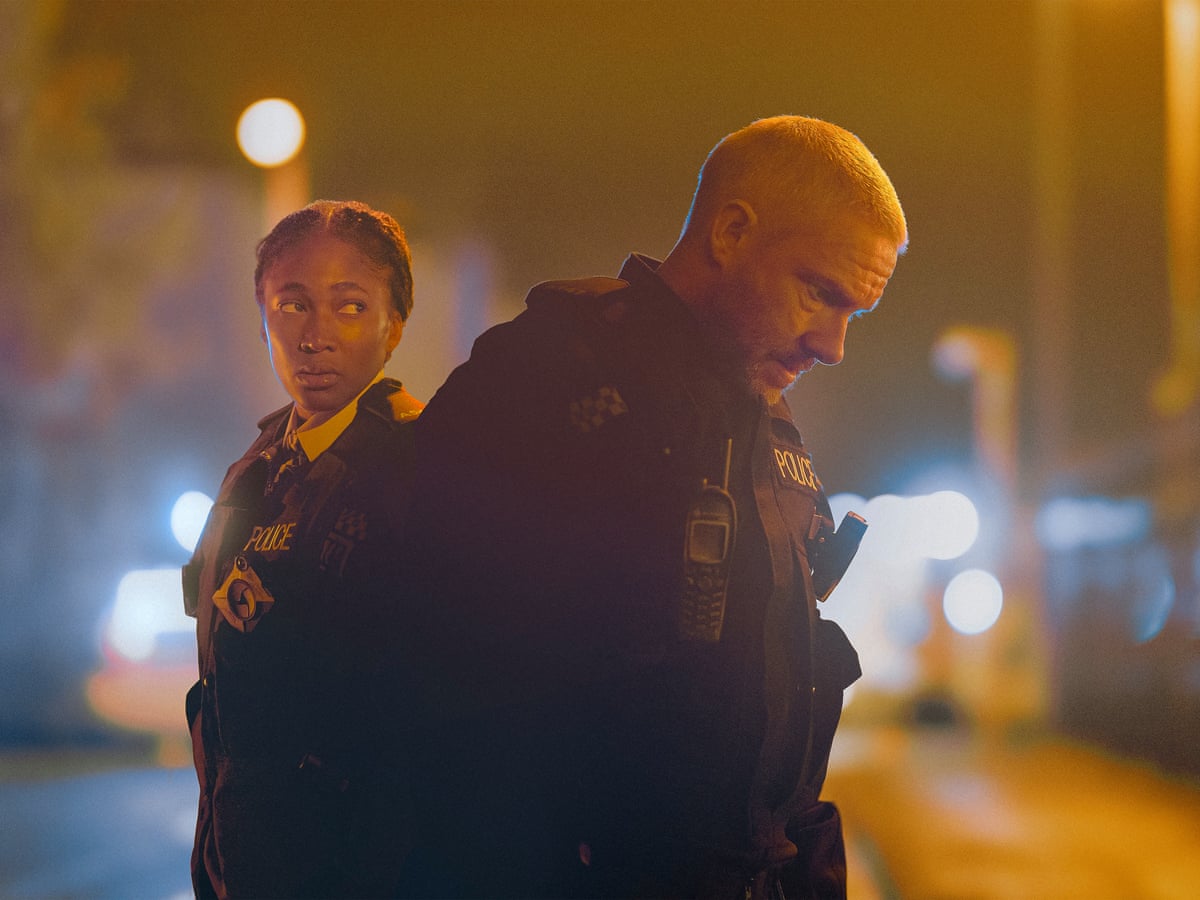
Did somebody say something about dodgy police? In the also-returning THE RESPONDER, there's nothing but. Martin Freeman's compromised copper Chris Carson is almost immediately thrown back into the shit, set up by a higher-ranking (and even more compromised) colleague and soon embroiled in the dealings of dealer Franny (Adam Nagaitis, once again crackling with the menace he brought to his role in The Terror). Also variously fucked are Chris's onetime work partner Rachel (Adelayo Adedayo), trying to get over domestic abuse and having failed her sergeants' exam; hapless Marco (Josh Finan), trying to stay off drugs and bring up his baby daughter; and Casey (Emily Fairn), now working for the unknowing widow of the dealer whose death she unwittingly triggered in the first series. There is humour here, though of the blackest kind (shout out to the inimitable Kevin Eldon for a cameo as a dementia sufferer). Really, it's no wonder Chris is so desperate to get off the night shift - The Responder paints nocturnal Liverpool as an absolute hellscape.
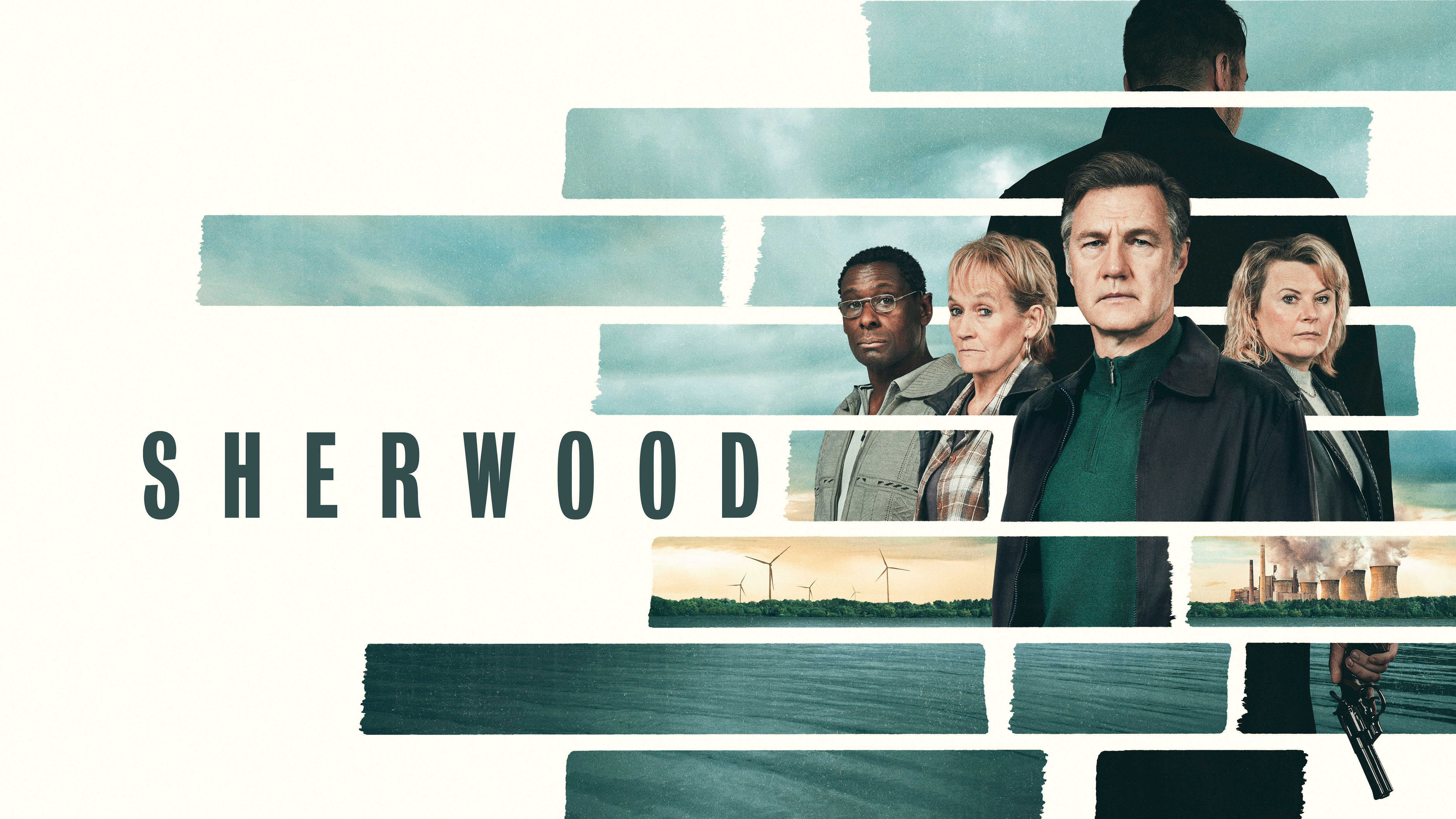
Also back on the box was SHERWOOD, taking a handful of characters from the first series (including David Morrissey's (now ex-)DCS Ian St Clair and Lesley Manville's widow Julie Jackson) into a new story. Where its initial run explored the fallout from the miners' strike and its policing, this year's sequel saw events sparked by a troubled young dealer shooting a man who turns out to be the scion of a feared local crime family, its heads played by Stephen Dillane and a frankly terrifying Monica Dolan. Actions have consequences, which is why Ronan (Bill Jones), youngest son of Series 1's crime family the Sparrows, is secretly meeting the half-sister he only just found out about in the same place as the shooting. As both the Sparrows and the foster family of shooter Ryan Bottomley (Oliver Huntingdon) are dragged into the ensuing retribution, things in Notts start to look no less intense than in the last two paragraphs' Belfast and Liverpool. It would also be remiss not to mention the real life fallout from the show, where Talk TV dimbulb Kevin O'Sullivan tried to stir up controversy about the casting of Ria Zmitrowicz as a gay, female Sheriff of Nottingham, seemingly under the illusion that this was a retelling of the Robin Hood myth. Incidentally, the first female Sheriff of Nottingham - a ceremonial position in modern times which involves a startling lack of shouting at wealth-redistributing outlaws in the forest - was Mrs. C. M. Harper in, er, 1931. God, the 1930s were so woke.
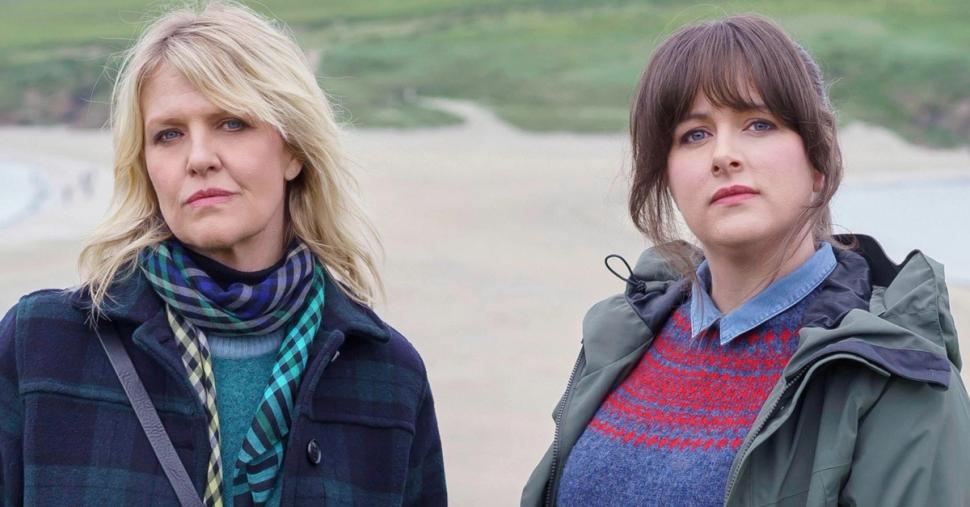
SHETLAND is clearly successful, now onto its ninth series and aired in prime time on BBC1, yet it seemingly sits sufficiently to the side of the cultural conversation that I don't remember the manosphere or the more fragile newspapers getting het up when Douglas Henshall's Jimmy Perez was replaced by not one but two female leads last time. Still helming proceedings this time round, the now fully-promoted Tosh (series stalwart Alison O'Donnell) and the apparently permanently resident Ruth Calder (Ashley Jensen) have a typically knotty plot to unravel when one of the former's mates goes missing. Spycraft, a diysfunctional family of fishermen, a shady medical facility, a Scandi couple with a sick daughter to enhance the Nordic Noir vibes, a conspiracy theorist called Campervan Angus... no matter how overloaded the elements look written down, you can be assured that everything fits together in the end. Perez is still missed, and Sandy (Steven Robertson and his wonderful, authentic accent) is underused this time, but the developing professional relationship and friendship between Tosh and Calder is a joy. The in media res opening was also a bold flourish to kick off the story.

A sense of place is crucial in the last four shows discussed, and so it is with Netflix's BODKIN. A cynical journalist, American podcaster and naive assistant travel to an Irish coastal town to investigate the disappearances of three people during a Samhain festival a quarter century before. The set-up and character types could lead to something rather predictable, but a slew of great performances and a rich streak of humour mixed into the folk horror and cold case tropes made for an eccentric gem. David Wilmot (Ripper Street) is particularly good value as shifty local Seamus Gallagher, while Chris Walley's feckless driver and Romanian hip hop enthusiast Sean O'Shea provides comic relief - his presence here perhaps explaining why he was largely absent from this year's disappointing fourth series of The Young Offenders.
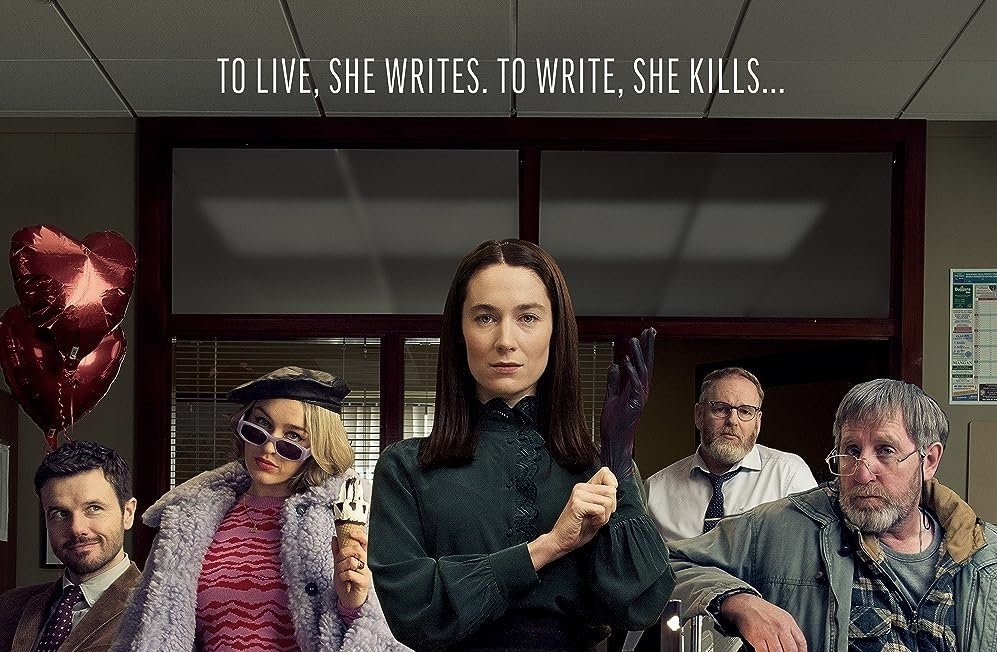
Siobhán Cullen's portrayal of troubled Guardian hack Dove led us back to last year's OBITUARY. No, it wasn't an account of the career of the Floridian death metal veterans. Another tale of smalltown Ireland, this one had Cullen playing Elvira Clancy, who finds herself as the local paper's resident writer of, well, obituaries. With not much work incoming, she decides to make matters into her own hands - and it says much about the respective characters that Elvira is somehow much more sympathetic a character than Dove...
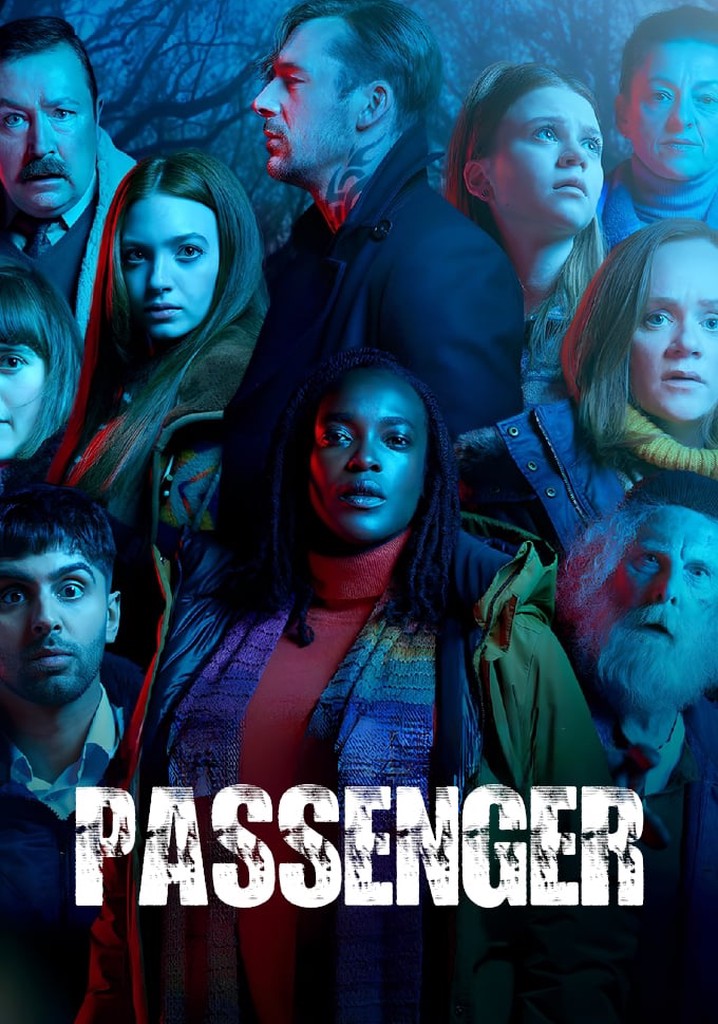
So for all the unpleasantness TV drama shows us in the Belfasts and Liverpools of the world, small town life is scarcely any safer. And so it was in two series set in Northern towns. PASSENGER was a wild ride, heading somewhere between Happy Valley and Royston Vasey. The excellent Wunmi Mosaku plays a weary Mancunian police detective, dividing her time between caring for her challenging mother-in-law and getting frustrated over the boredom of local policing. Litle does she know that Chadder Vale is about to become embroiled in a plot involving something nasty being smuggled via the bread factory, teens disappearing then returning slightly altered, dismembered stags, a weird computer game, a local fracking site... If that sounds a bit much, plenty was left unresolved at the last episode's cliffhanger, with writer Andrew Buchan revealing that he has plans for multiple series - though as yet there is no news of a potential recomissioning.
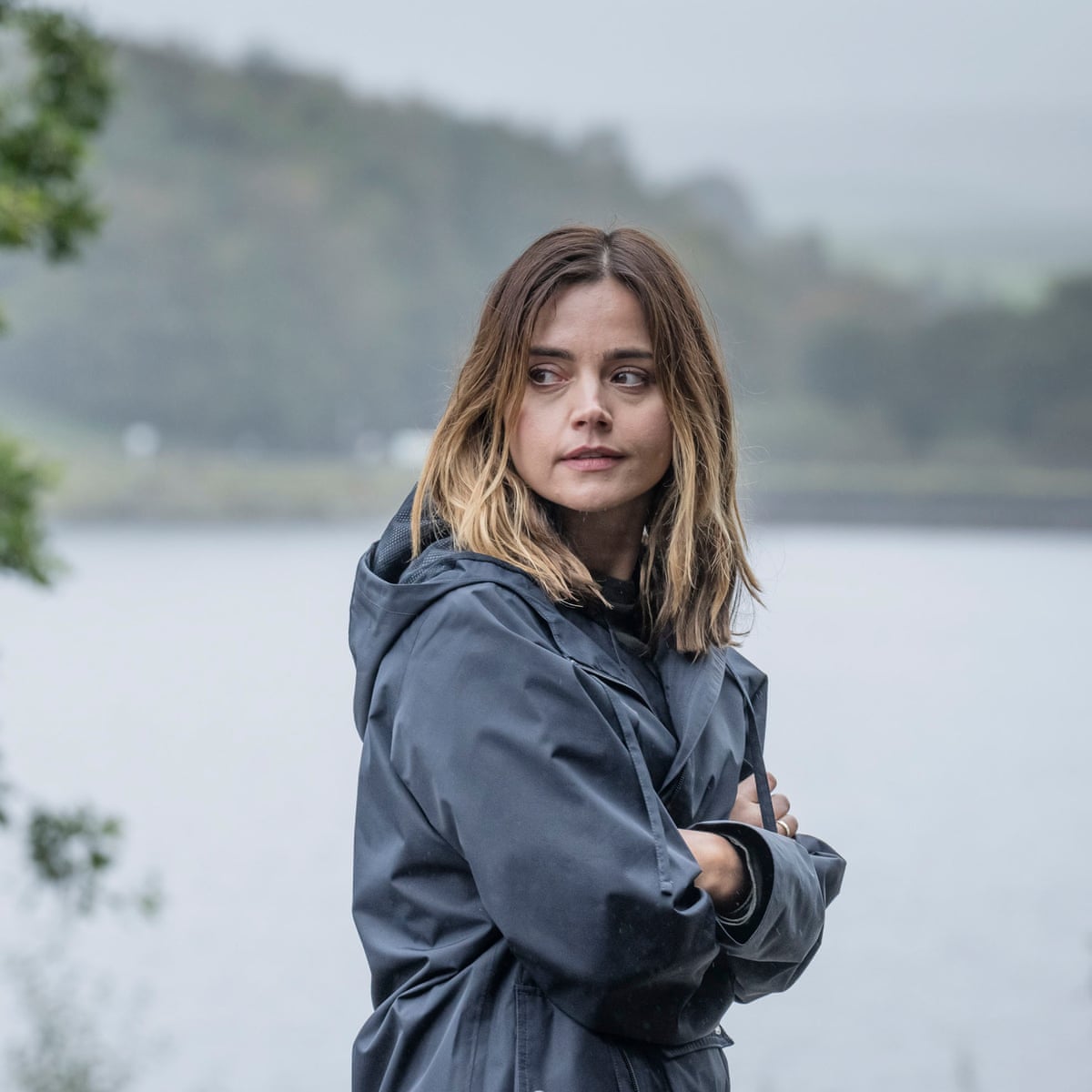
More self-contained was THE JETTY, starring Jenna Coleman as, yep, a weary police detective. Unlike Passenger's Riya, DC Ember Manning is still policing in the town in which she grew up, had a daughter at 17 and was later widowed. Consequently, she is more embedded in a community variously dealing with arson, the attempted suicide of a(nother) pregnant teenager and a visiting podcaster digging into the disappearance of (yet) a(nother) teenage girl 17 years earlier. You will note that much of this reads like a checklist of modern tropes - this isn't even the first mention of a true crime podcaster in this round-up! - but The Jetty transcends cliche to provide a layered examination of male violence, sexual exploitation and the cost of people turning a blind eye.
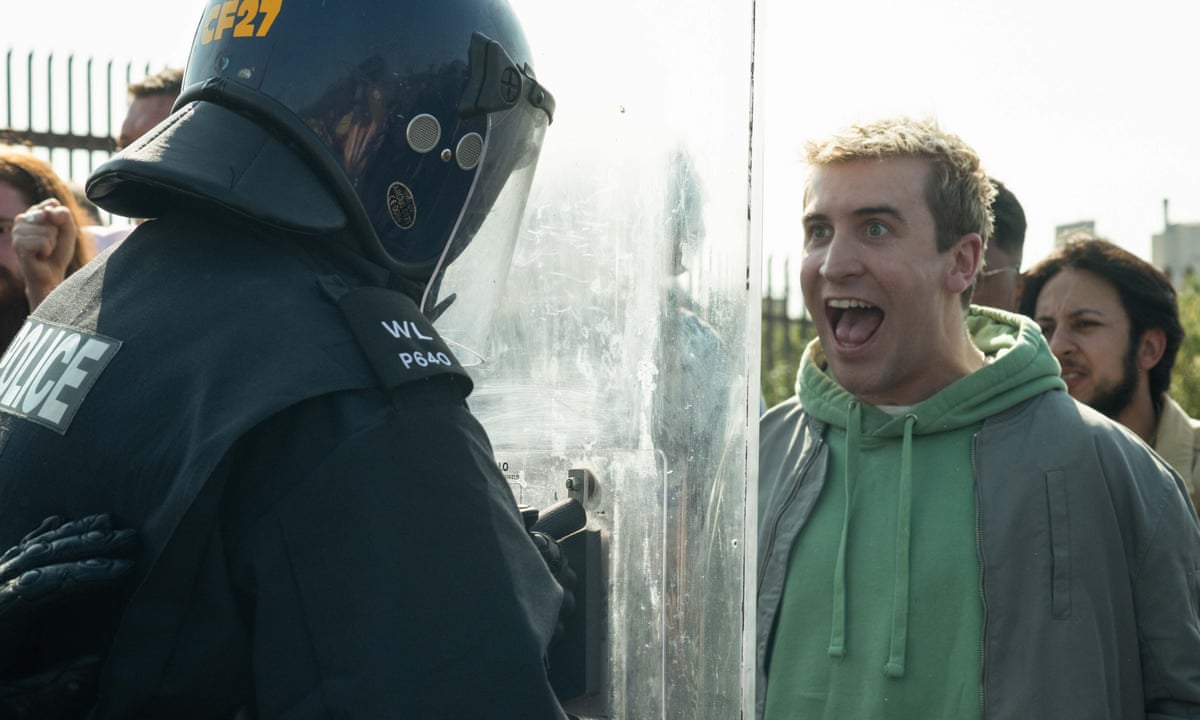
In theory, Michael Sheen's THE WAY was going to be a hard-hitting drama about tensions between unionised steelworkers and their bosses in Port Talbot, but it turned out to be a much stranger beast. Not so much in the basic storyline - a protest tuns violent, martial law is imposed in classic dystopian style, the central (dysfunctional) family goes on the run - but in the way it's presented, and the details inbetween the primary plot beats. The involvement of Best Living Documentary Maker Adam Curtis manifests in jerky editing involving CCTV footage, news clips both real and imaginary, and the potent imagery of the internet, including sections which the viewer knows to be either manipulated or taken out of context. These co-exist with weird fantasias to make everything, including the more kitchen sink/social realist heft of the main sequences, feel dreamlike, an effect amplified by the presence of a wild-eyed soothsayer, a red-clad monk, an Arthurian sword and Michael Sheen as a ghost. Arguably this show toppled under its own weight after the first episode as hostility towards the whole of Wales resulted in heavy-handed allusions to the refugee crisis and the presence of a bounty hunter called, preposterously, The Welshfinder. But it was quite unlike anything else on TV this year...
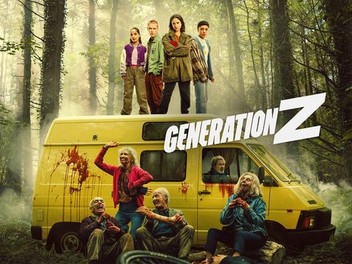
...although, weirdly, I found myself reminded of it while watching GENERATION Z. I didn't have a fight to the (un)death between Sue Johnston and Anita Dobson on my bingo card for the year, but that - amongst a lot, lot more - was what we got in Ben Wheatley's zombie satire. Like Passenger, it opened with something nasty escaping from a lorry on a country road, and like The Way it employed some speedy editing to show a town being shut down by the military. Shades there also of The Midwich Cuckoos I guess, although in this instance it was not sinister kiddywinks but the elderly who were the threat, turned hungry for flesh and restored to youthful stamina while retaining more sentience than yer average zombie. As in, say, Anna & The Apocalypse, it was a small band of local teens who ended up as heroes, and consequently the dullest viewer would have sussed that this was intended as a satire of the way that the Brexit-voting, GB News-watching section of the oldster populace seem to hold the youth in a sort of jealous contempt - even if that includes their literal grandchildren. (It's worth noting that one care home resident, Robert Lindsay's Morgan, who has retained the countercultural attitudes of his youth and is friends with teenager Finn, staves off the effects of a zombie bite - using science, no less). Of the younger actors, it's Viola Prettejohn and Lewis Gribben who make the largest impression; the former imbues Finn with sufficient spiky intelligence and cynicism to evade the misifit outsider cliches which could have attached to her character, while the latter understands both the vulnerability and comic timing required to make even a nascent incel like Steff sympathetic (incidentally, if anybody ever reboots Trainspotting, Gribben would be a shoo-in for a young Spud). Not sure whether it's relevant, but the younger characters all have gender-neutral first names - maybe another subliminal refenrece to different cross-generational attitudes/flashpoints?
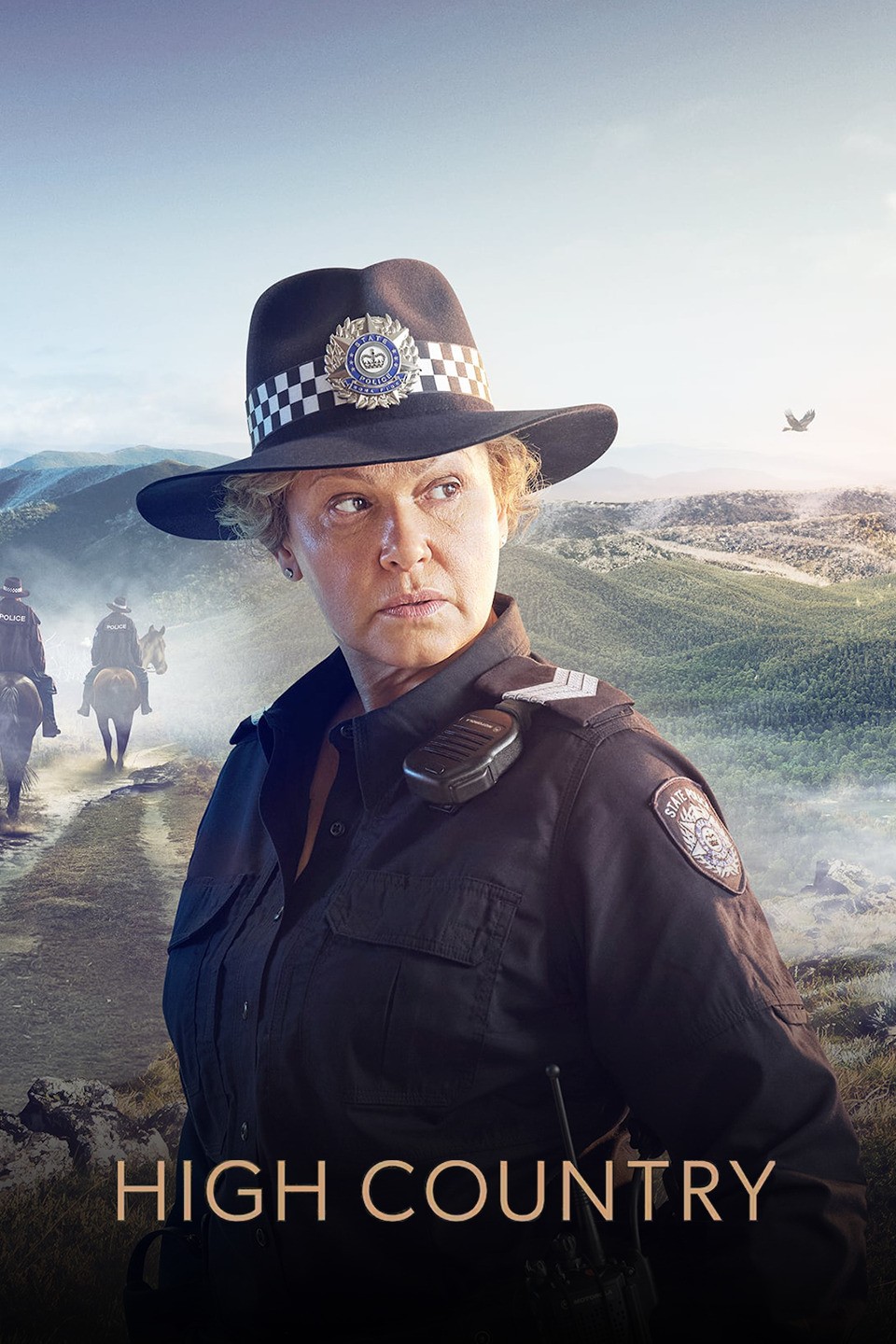
One more case of shit hitting the fan in a small town before we move on? HIGH COUNTRY was a drama involving missing persons in the Australian wilderness. In recent years, I've been impressed by Mystery Road, whose Aaron Pedersen shows up here, but it's a nice change to have an Aussie show set not in the outback, the big city or a sunny bay, but in a lush rural area. Anyway, Leah Purcell is excellent in the role of a senior police officer reassigned to perfectly-named small town Brokenridge, with a supporting cast including Ian McElhinney and, in a role that would have been perfect for our own Paul Ready, Henry Nixon. If High Country didn't do anything we haven't seen in plenty a Nordic Noir, it still proved a worthwile addition to the global stocks of mystery drama.
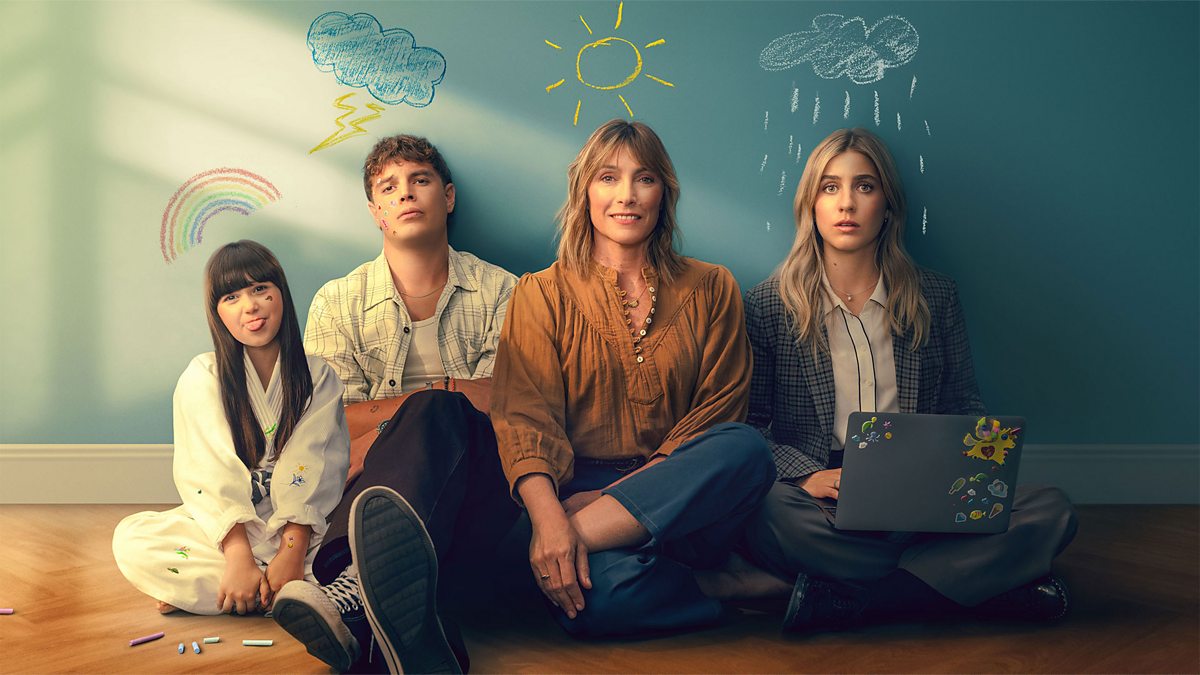
Staying Down Under, regular readers will probably be fed up of my annual advocating of BUMP as one of the finest shows of the decade. Heartwarming without being schmaltzy, with engaging characters who rarely appear anything less than three-dimensional, this comedy-drama (initially) about teens dealing with a surprise pregnancy hit its fourth season this year. With Oly and Santi now settled, much of the drama this time out came from the faltering relationship of the lead couple's best mates Reema and absolute sweetheart Vince, though as usual there was plenty of other stuff going on: Oly dealing with a nightmare boss, mum Angie throwing herself into eco-protest, Santi finding himself in the world of Furries through an art commission, bumbling dad Dom continiung to bumble... Apparently the next season will be the last, so maybe it's time to get stuck in if you haven't already?
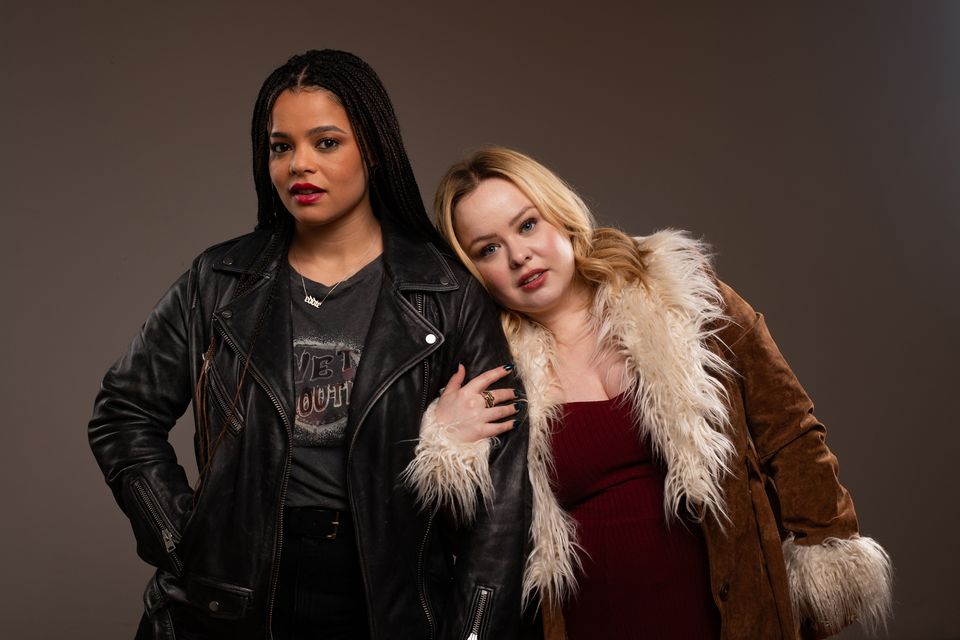
I have to admit, I've only got round to the first couple episodes of the second series of Colin From Accounts, so while we're on a dramedy tip let's look instead at a couple from closer to home. BIG MOOD featured the formidable pairing of woman-of-the-moment Nicola Coughlan and Lydia West, but - while nowhere near as bad as last year's I Hate You, which it superficially resembled - somehow it didn't quite hit the mark for me. Coughlan's portrayal of the bipolar Maggie felt authentic, and West has probably never been better, but after Big Boys, the lurching between brash comedy and the more sensitive study of mental health disorders felt jarring. Mind you, it could be said that that was a perfect metaphor for the condition it sought to explore.
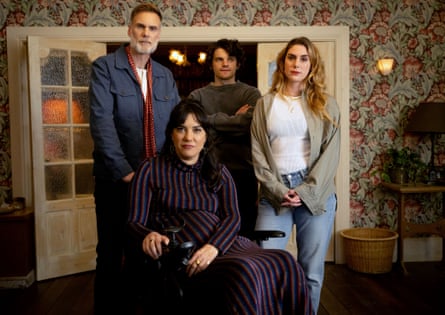
More successful, in my book if not in column inches, was WE MIGHT REGRET THIS, created by and starring Kyla Harris. I'll try and summarise the basic set-up: Harris stars as Freya, a tetraplegic Canadian artist who's moved to London to live with older boyfriend Abe (Darren Boyd); her best friend Jo (Elena Saurel) moves in as her carer, before surreptitiously beginning an affair with Abe's son Levi (Sex Education's Edward Bluemel, cornering the market for troubled but charismatic young men). The excellent Sally Phillips is also in it as Abe's wife Jane. If the laughter is often of the uncomfortable kind, this is one of those rare shows that makes you consider disability from different angles, including - most importantly - the perspective of the person in the wheelchair.

It's only been adapted twice now, but somehow the 2009 David Nicholls novel ONE DAY feels like a sort of modern classic already. This year's Netflix version was an astoundingly faithful reading of the original, with whole scenes appearing pretty much word-for-word from the book. There's something almost magical about the story of the intertwined lives of Emma Morley (Ambika Mod, really coming into her own here after This Is Going To Hurt) and Dexter Mayhew (Leo Woodall), with the conceit of dropping into their lives on St Swithin's Day each year far better suited to a 14-episode series than the film version. From the boozy excitement of graduation night onwards, both novel and series do a wondrous job of capturing the experience of growing up through your 20s and 30s - and specifically, through the late 80s to the '00s, the TV series including a number of signifiers which will resonate with a significant cohort very much including myself (I hadn't really considered before how much nostalgia can be triggered by a Suede song on a soundtrack). The notion of a 'will they/won't they' romance may have been done many times before, but compared to the slowly evolving nature of Dex and Emma's friendship, most previous examples have basically jumped into bed straight away. As I say, this is a modern classic so it's easy to forget that some people watching this won't be prepared for one of the biggest gut-punches in the 21st Century popular novel - no spoilers here exactly, but let's just say one of the performers here needs to play someone who gets a happy ending someday.

Netflix were all up in the adaptation game this year, but we haven't finished Ripley or The Decameron, or even started 100 Years Of Solitude, so let's head even further back for our source material and embrace KAOS. This bold reimagining of Greek mythology (particularly the stories of Orpheus and Eurydice and the Minotaur) was headlined byJeff Goldblum as a petulant, paranoid Zeus in tracksuit and dressing gown, but impressive performances abounded, including Nabhaan Rizwan (who we might have shared a lift with in a London tube station this summer) as Dionysus and Stephen Dillane as a wily, fourth wall-breaking Prometheus. While Mount Olympus was an oligarch's mansion, the humans of Kaos inhabited an alternative Crete, modern but with a vivid out-of-time quality reminiscent of Baz Luhrmann's 90s retelling of Romeo And Juliet. And then there was the Underworld, rendered in monochrome. This was big, bold storytelling, that didn't stint on the cruelty of gods - and also recognised that in these ancient tales, fluidity between both species and genders was not uncommon. God, the eighth century BC was so woke.
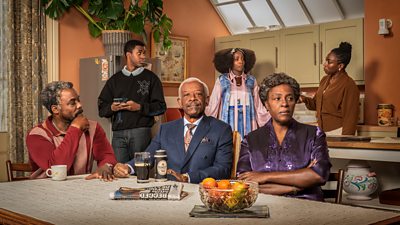
A very different literary adaptation came in the form of the BBC's MR LOVERMAN, based on the Bernardine Evaristo novel of the same name. Lennie James (aged up, as are other cast members, so as to be able to play younger versions in flashback) is Barry, a septuagenarian Antiguan who's lived in London for decades with wife Carmel (Sharon D. Clarke). Barry is a dapper rogue with a taste for boozy nights - and, so Carmel reckons, the ladies. In fact, he's lived his life in the closet while secretly maintaining a relationship with childhood friend Morris (Ariyon Bakare). All three of these actors are at the top of their game in a series which scrupulously shows things from all sides. If it's initially easy to be charmed by Barry, and to have sympathy for someone who's had to deny their sexuality for more than half a century, he's also shown to be selfish, and for the situation to be equally unfair on Carmel and Morris. Similarly, while Carmel first appears to be austere and overbearingly Christian, an episode soon comes along to focus on a younger version, torn between an unreliable husband and the possibility of a different, freer life. Throw in supporting turns from younger talent like Tamara Lawrance and Sharlene Whyte, and you have a series - like One Day, really - both vibrant and heartbreaking.
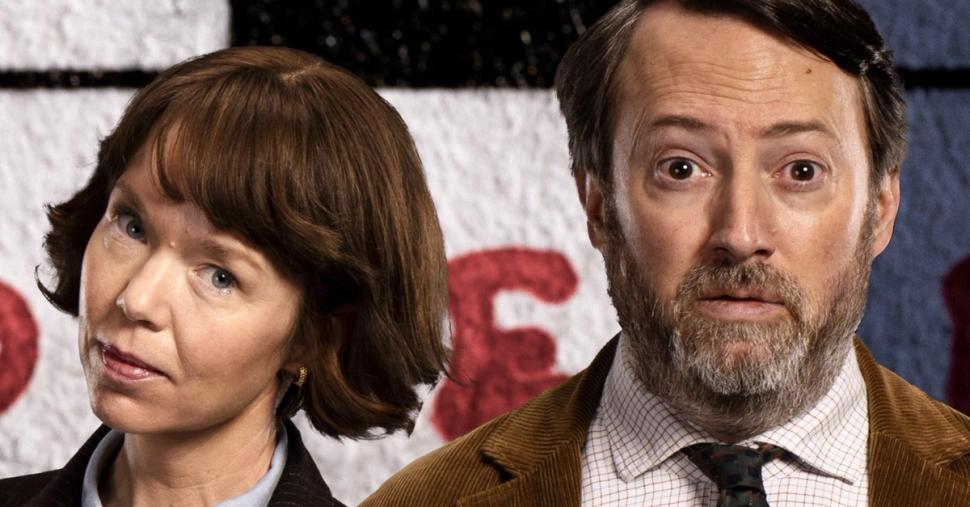
There's never a shortage of trad detective shows on British telly. The Death In Paradise behemoth continued to expand with a second spin-off show, the Aussie-set Return To Paradise. Grace continued to have engaging plots but a weirdly uncharismatic turn from John Simm in the title role; conversely, this year's Strike offered a ridiculously convoluted, unrealistic plot while remaining watchable thanks to the chemistry between leads Tom Burke and Holliday Grainger. Somewhat bizarrely, the most successful show of this kind, in terms of ratings and critical acclaim, turned out to be LUDWIG, starring David Mitchell as, well, as the exasperated, uncomfortable character he always plays. This time round he's an exasperated, uncomfortable puzzle-setter called John Taylor who - oh, Christ - ends up impersonating his missing twin, who happens to be a police detective, solving a series of murders-of-the-week while trying to get to the bottom of what happened to his brother. The ongoing conspiracy storyline is just about enough to distract from the largely unengaging murder plots (which mostly have the feel of a less satisfying Death In Paradise, set in Cambridge rather than the Caribbean), while the regular cast is packed with familiar faces - Dorothy Atkinson, Ralph Ineson, Sophie Willan, Izuka Hoyle, Dipo Ola and Anna Maxwell Martin, the latter's presence as Taylor's sister-in-law singlehandedly elevating proceedings.
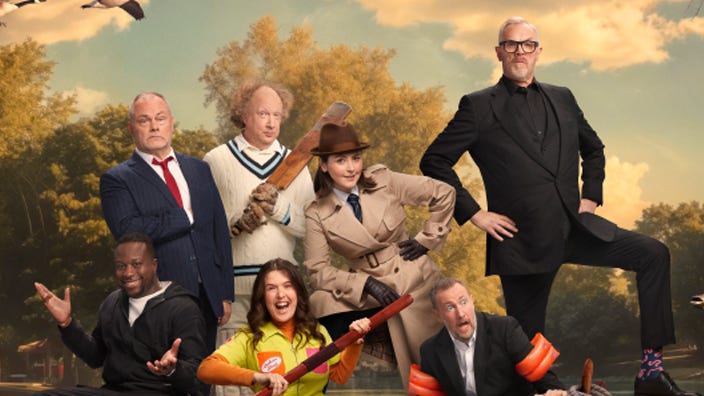
It seems likely that Ludwig will return, but will it become a stalwart of the schedules like the last three shows we're going to look at? You can take all yer other gameshows, even the ones featuring David Mitchell as an exasperated, uncomfortable contestant/presenter, and none of them can match the endless regenerations of TASKMASTER, which this year aired its 17th and 18th series, as well as a New Year's epiosde, the third Champion Of Champions contest, and a kids-based spin-off. You would think the formula would be stretched thin by now, but getting to see (mostly) British comedians and actors act the giddy goat and reveal something of their true selves in the process continues to be a delight. There wasn't much to choose between this year's two main servings, but Series 18 maybe clinched it thanks to the unlikely rapport between Rosie Jones and Jack Dee, and Emma Sidi's unfeigned Home Counties weirdness.

Speaking of regenerations, DOCTOR WHO returned with, well, depending on how you count it, Series 40, 14 or 1. Ncuti Gatwa's Doctor was bold, brash and full of energy and emotion; even forgetting the obvious reasons some viewers might be unhappy with his casting, I can see how his portrayal doesn't chime with everybody's idea(l) of the character, but I think he's brilliant. As has been the case for most of the show's long history, not every episode worked for me, and the famously anticlimactic reveal of the identity of Ruby's mother was such an unforced error that I'm still baffled. However, 73 Yards was amongst the best of Nu-Who's standalone oddities, Dot And Bubble transcended its Black Mirror-lite elevator pitch with its potentially audience-shaming twist and (up until that fumbled ending) the Legend Of Ruby Sunday/Empire Of Death two-parter was an epic finale that pulled at threads from the show's history with panache.
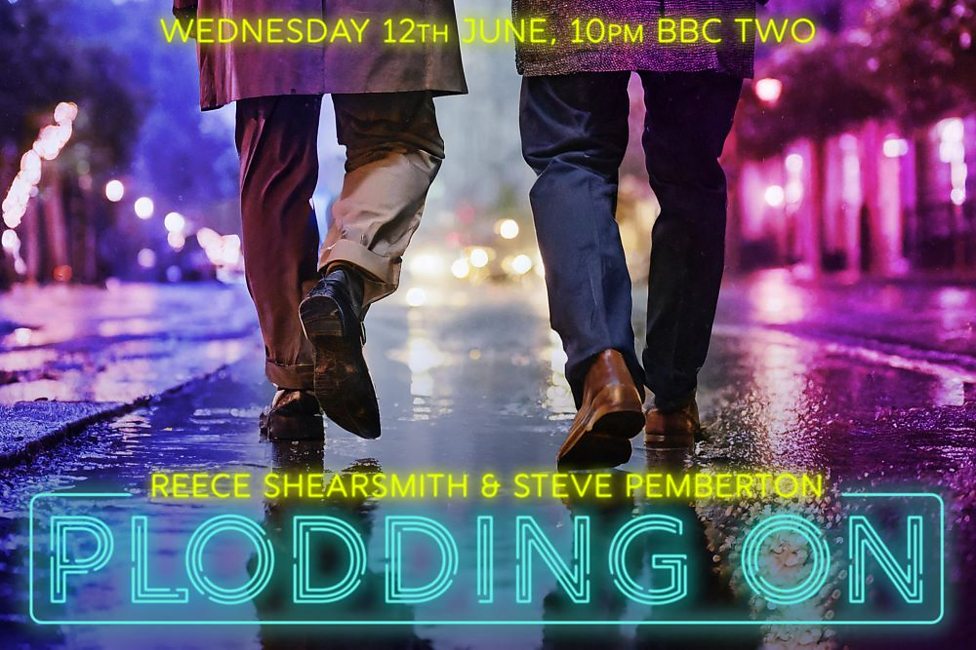
And so we reach the final curtain - as did INSIDE NO. 9, with (of course) its ninth series. Once again, some episodes worked better than others - of my favourites, Boo To A Goose worked a brilliant cast and a claustrophobic situation to great effect, and Mulberry Close managed to tell an involving story of suburban suspicion through the medium of a fixed doorball camera. A fitting end came with Plodding On, set at the wrap party for the series and bringing back many alumni of earlier episodes, including wonderfully self-satirising turns from Katherine Parkinson, Tim Key and Amanda Abbington. While obviously meta (including a subplot about the never-filmed On The Buses spoof episode misleadingly trailed for the previous series), this also served as a genuine celebration of one of the most impressive creative partnerships of their generation. Thanks for everything, Steve Pemberton and Reece Shearsmith.
No comments:
Post a Comment